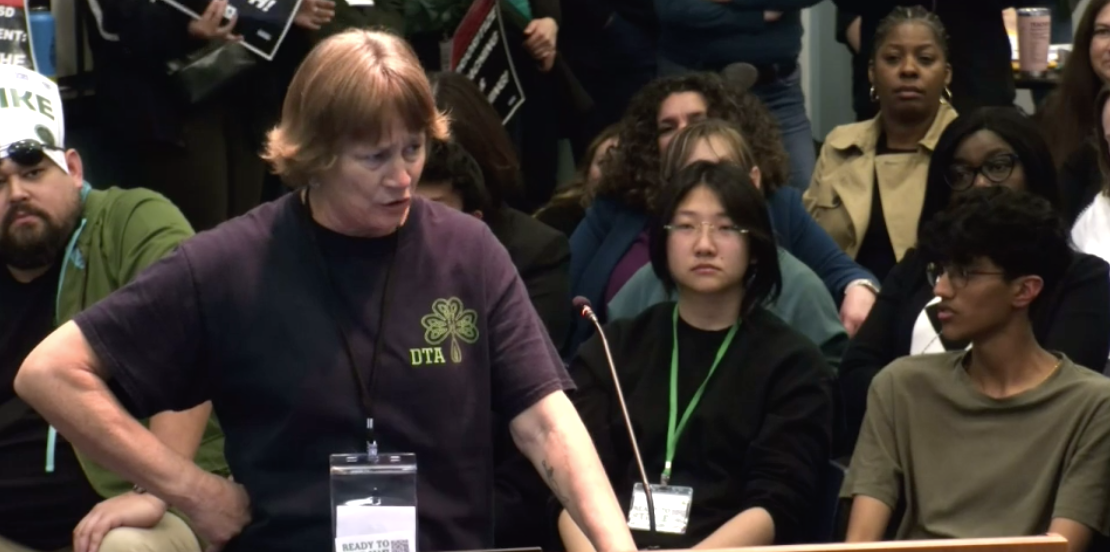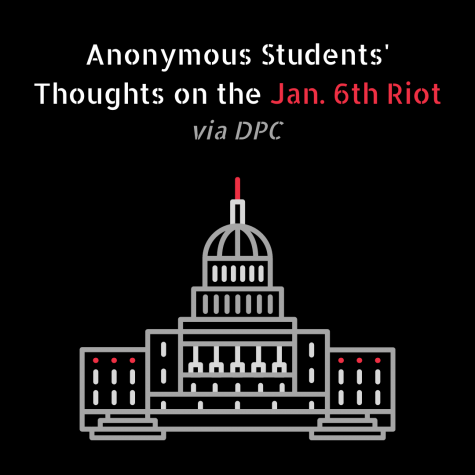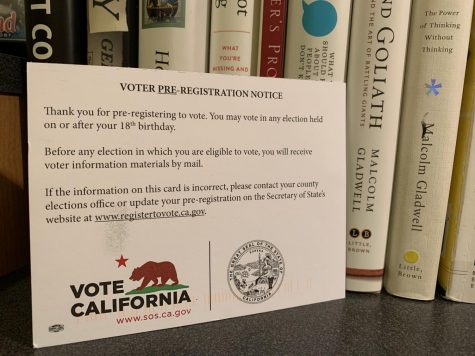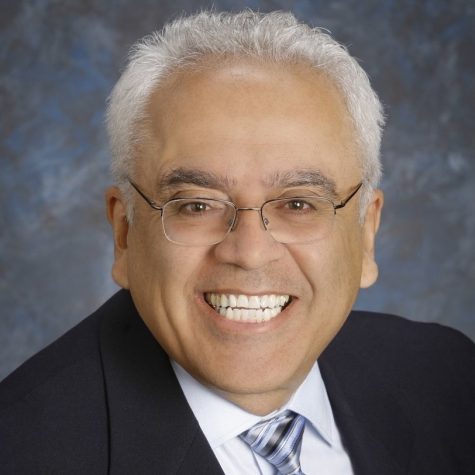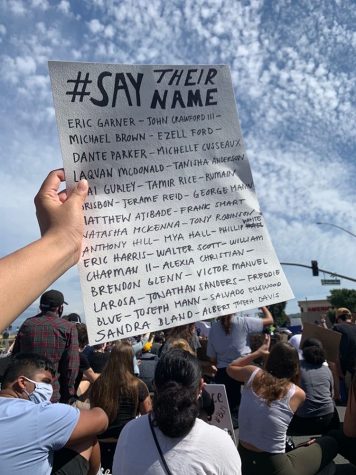The French Presidential Elections: Scandals, Surprises, and Suspense
In a few days the French people will gather at the polls to cast their votes for the candidate they believe most suited to be their new president. Though the presidential elections of a country nearly five thousand miles away may seem irrelevant to us in Dublin, California, it’s relevancy cannot be understated. In the world we currently live in we cannot afford to distance ourselves from any political events, especially one’s with the magnitude of the upcoming French elections.
The French government is a representative democracy similar to the United States, though France is a unitary state rather than a federal one meaning that it has a strong central government with little to no devolution. France has two national elections, one for its presidency and the other for the national legislature. In both these elections, the people vote directly for a candidate rather than through an electoral college, like the United States. The presidential elections, which are currently ongoing, result in one candidate with a five-year term. France operates on a multiple party system, with nearly a dozen major parties making French presidential elections a stark contrast to the United State’s. Freshman Morgan Minkler expressed her support for the French election system describing it as “a more competitive and efficient system than the United States.” Minkler also stated that “the larger number of parties means that candidates are forced to truly defend their stances and the people’s choice has much more value than in the United States.”
The elections are preceded by primaries in each of the respective parties, resulting in eleven candidates for the national election. France’s elections are a two-round system, that began on Sunday, April 23rd. At this stage, all candidates from several parties contest against each other to gain the largest percentage of votes. Traditionally, at the first stage, the two parties to continue were the right-wing Les Republicains and the left-wing Socialist Party. Due to political scandals this year neither one of these parties has advanced to the next stage. There is typically no clear winner at this stage, but there are two frontrunners who ascend to the next stage, a run-off round to officially receive the position of president on Sunday, May 7th. The new president is expected to be confirmed and assume their duties on the 11th, far sooner than in the United States. Interestingly, rather than being held on the same date each year French elections are always on a Sunday to maximize voter turnout.
After the primaries described above eleven candidates began campaigning for the presidency with a few notable frontrunners. The five candidates considered frontrunners during the initial round, in no particular order, were François Fillion of the Les Républicains, Benoît Hamon of the Socialists, Jean-Luc Mélenchon of Unbowed France, Marine Le Pen of the National Front, and Emmanuel Macron of the Independents. Fillion was one of the initial favorites though his campaign was tainted by scandal after the press accused Fillion of paying his wife nearly a million euros for a non-existent government position. Hamon was a surprising nomination during the primaries, beating out the former prime minister. Hamon is a far-left candidate who has struggled to earn the support of the working class, though he is favorable among educators and ecologists. Mélenchon is a radical candidate with strong support from communists, ran on the promise of a non-violent citizen’s revolution and to rewrite the constitution to break from what he referred to as France’s “monarchical presidential system.”
Le Pen is a far-right candidate described as a firebrand whose success came as a surprise to many. Le Pen has worked to distance herself from her father Jean-Marie Le Pen’s reputation as a racist holocaust-denier more concerned with creating drama than properly leading the National Front. A former lawyer, Le Pen led the National Front in a different, more far-left, direction after seizing party leadership from her father in 2011. Le Pen is now competing on behalf of her party for the French presidency, a rare occurrence for the National Front. Junior Kelly James described Le Pen as “a smarter, more terrifying version of Donald Trump sure to cause disruption regardless of the outcome of the final stage.” Critics, mostly among the high-class well-educated people of France, consider her to be a dangerous force of hate and in opposition to the ideals of the French Republic. Le Pen has clearly been awarded support, largely from the working class of France, for her tough stances on immigration, foreign affairs, and the European Union. Le Pen advanced to the run-off, placing second in the initial round with 21.91% of the total vote.
Macron is another outsider, a former banker with no experience in elected office. Macron served as the former president, François Hollande’s “eminence grise,” advising him on economic reform and then as his economy minister from 2014 to 2016. Macron angered Hollande when he resigned to form his own political party “En Marche,” which translates roughly to “On the Move”. Calling for a “democratic revolution,” Macron has promised to work for the either the left or the right but for France. Macron’s lack of experience has in several cases worked against him, though for some people it may add to his appeal. Criticized for speaking in empty slogans and being too supportive of business and Europe as a whole Macron has regardless ascended to the run-off round. Sophomore Talia Noique found it interesting that such a new party and an “independent candidate has such great influence in national politics” describing it as something “you would never see in the United States.” Macron is now competing against Le Pen in the run-off round having earned first in the initial round with 23.72% of the total vote.
Both candidates entered the race as outsiders but have surprised the country and the world with clear success. Currently, polls are in conflict with some supporting a victory for Le Pen and others for Macron. Madame Lea, a French teacher at Dublin High, expressed concerns about the current political climate in France, stating that if Le Pen was elected “you will for sure see the exit of France from the European Union and the Euro crash.” She also mentioned that she feared Le Pen’s plans “to severely curb freedom of religion and expression pushing Muslims and others that already feel they are disseminated further underground and aggravate the situation even more.” Most political pundits and major polls, however, favor Macron and consider a Le Pen victory unlikely. Some politicians who fear a Le Pen victory have been accused of playing petty politics in attempting to limit her power as president by decreasing her party’s power and seats in national and local legislative bodies. Neither Le Pen nor the National Front was expected to come this far and several remain doubtful for the likelihood of their success in the run-off round. However, after the growing populist surge in global policies, Britain’s referendum in favor of leaving the European Union and the election of our own president Donald Trump, it remains unclear where this election will go.
During the process of writing this article and several others the Shield has encountered students who were apathetic and often unknowledgeable of politics on local, national, and global scales. The Shield interviewed several students who were either unaware or disinterested in the French presidential elections, with one senior going as far as to say that “the majority of Dublin High, and honestly the majority of Americans have become so self-obsessed they’ve stopped caring about the world outside our bubble.” Though French politics may seem a world away the results of this election will undoubtedly affect American shores. As Madame Lea vocalized, “Americans don’t pay attention to world events as much as they should. It would force Americans to think through the consequences of certain candidates being elected. Americans need to wake up and pay attention to the possible consequences of the French elections.” After all, this election will affect not only the future of France but the future of the European Union, the Middle East, the global economy, and current political alliances. In an increasingly connected and globalizing world choosing to remain unaware of global politics can have implications closer to home than we may expect. In the midterm elections in two years and then in the presidential elections in four years the students of Dublin High will be voting candidates that will be campaigning on policies that will undoubtedly be affected by the results of this election. Understanding the current events in France and their ramifications makes for more informed individuals capable of making smarter choices. Further, in four years we considered entering the global workforce the opportunities available to us will be inextricably linked to these elections. If we want some say in the world we are being prepared to enter we can’t afford not to understand it. A closer attention to global politics is imperative if we intend to create a better future for not only our generation but all the generations that will follow.
Your donation will support the student journalists of Dublin High School. Your contribution will allow us to purchase equipment and cover our annual website hosting costs.

Kaushikee Nayudu is a senior at Dublin High and the Editor-in-Chief for the Dublin Shield where she enjoys writing articles covering a diverse range of...



